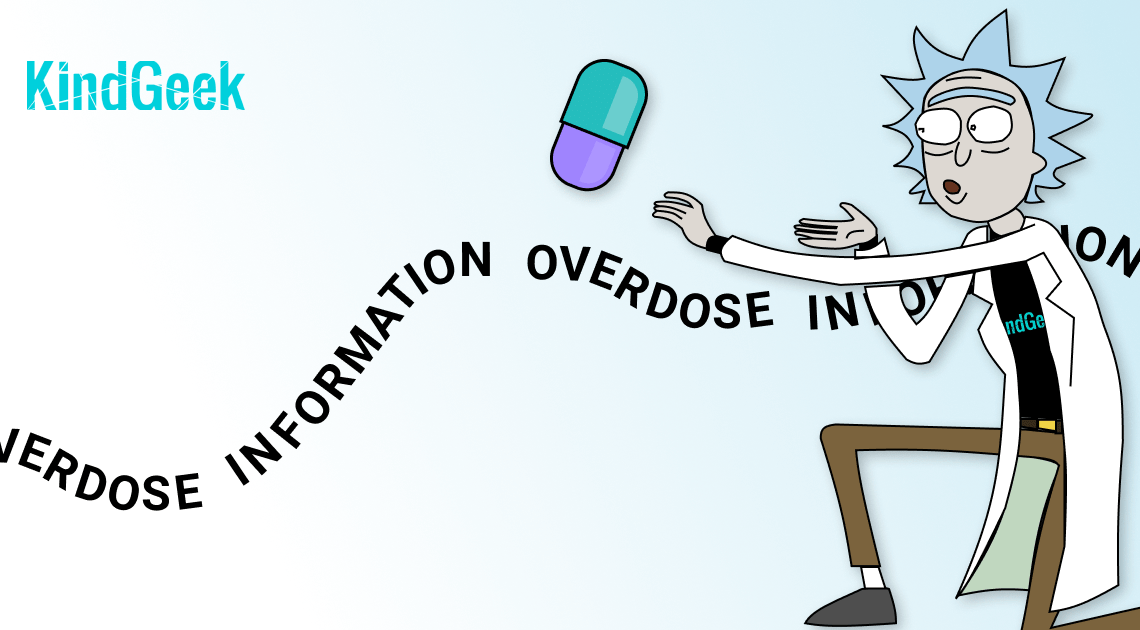Work in the IT field means being constantly surrounded by gadgets and social media: calls with clients, briefings, staying up to date on the news, swiping LinkedIn, reading emails. By the end of the day, the mind is completely loaded with information. In the mental health awareness month, the COO of KindGeek Yuriy Gnatyuk shared his experience of dealing with information overdose.
Digital detox
In 2018, Nielsen analysts estimated that the average American spends about 11 hours a day interacting with social networks and media: Facebook, Twitter, Instagram, Youtube, Netflix. We can only imagine the numbers in 2021.
Last year in October, I had the first digital detox of my life – two weeks without social media and news. To be honest, although I admit that I feel addicted to social media, it was not a completely conscious action. It was rather a need since my eyes were physically tired due to the constant work at the monitor and reading books. So, I decided to give them a rest.
Here’s how it all turned out. These two weeks were full of life: parachutes, mountains, a yacht trip, rafting on a mountain river, safari, sea. All without taking pictures, posting on social media, and swiping. The experience was unique – sometimes, it even felt like a different reality. I found out that I had a lot of time to reflect. Suddenly, the mind was freed from the large information flow and started to look for something to fill in the gap. Already.
The amount of information we consume every day is enormous. The information overdose is much more harmful than we used to think. Most of us were born in the analog era, and we were not taught how to use devices and applications. When I wrote the previous sentence, I counted 7 (!!!) separate devices around me.
The “symptoms” of information overdose
After my trip and detox ended, I decided to take a closer look at this issue. After reading several books, articles and doing reflections on this topic, I identified a few main consequences of information overdose:
- Low level of attention control
- Low (self) awareness
- Low quality of thoughts
- Low quality and speed of decision-making
Attention is the main and most important personal asset. Politicians and brands are fighting for people’s attention. Therefore, the ability to manage the informational space and control attention is perhaps the most important skill of the 21st century.
It is essential to understand that the emotions we receive from the constant consumption of information affect the inner state of our minds. Negative emotions such as sadness, fear, excitement, boredom cause “mental entropy,” the state when we can not entirely focus on external tasks because we constantly take care of mental stability. Everything that contributes to mental stability has an excellent effect on our productivity. Since we do not need extra effort and attention to dig into and feel sorry for ourselves, it makes it much easier to implement ideas and complete tasks.
The symptoms of the informational overdose are pretty visible. If checking Gmail, social media, the news is the first thing you do when you wake up, and it is a warning sign that you might have an informational overdose. Another case: when you watch Netflix or YouTube, you simultaneously swipe Facebook or Instagram from your phone. What about swiping “update” in the second round after reviewing all the new posts on social networks? Or checking the number of likes and views every few minutes after posting something? You might also have a habit of responding instantly to all messages, and if you do not do that immediately, you have a sense of guilt and slight anxiety. If you have ever noticed those “symptoms,” you should think about “detox.”
Detox is not just about a week, two, or even a month without social networks or phones. It might help for some time, but there is still a big chance that the old habit of constant scrolling will come back.
Tips and tricks to deal with information overdose
Here are some tips that I found helpful to deal with information overdose:
- Try not to pick up the phone right after waking up (you could replace it with a book or silence).
- Do not turn on Wi-Fi until the start of the “working day.”
- Remove the icons of all popular social networks from your main screen.
- Set “quiet hours” without a phone, for example, from 11:00 to 19:00, during which you should not scroll social networks.
- Disable notifications.
- Turn on airplane mode more often;
- Remove unnecessary social networks, “clean” channels, unfollow those who create too much noise;
- Do not touch the phone during meals or at bedtime.
- Install the “Elevate” app (or similar), and every time you want to scroll, click on it, solve logic problems, count, and learn English.
- If you decide not to use messengers, warn your loved ones that you will not be available or leave one channel for urgent communication.
- Here are the programs that will help you keep the informational hygiene: OFFTIME, Moment, Freedom.
Information hygiene is primarily about the quality of our thoughts which highly correlates with the quality of our lives. When we are not distracted by the constant information noise, the quality of our life increases significantly.




